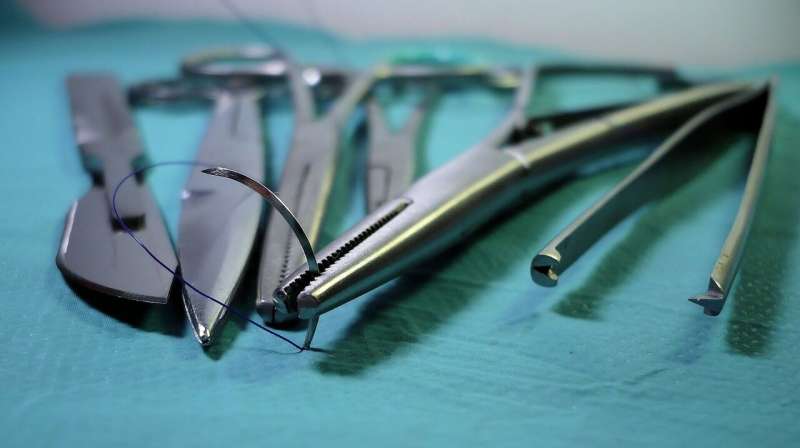Credit: Pixabay/CC0 Public Domain
A cohort study from the Italian Colorectal Cancer screening program including more than 49,000 colonoscopies found a significant inverse association between endoscopists' proficiency as measured by adenoma detection rate (ADR) and post-colonoscopy colorectal cancer (PCCRC). These finding suggest that targeting only poor performing endoscopists with measures to increase ADR may significantly reduce PCCRC risk. The findings are published in Annals of Internal Medicine.
Colorectal cancer (CRC) population screening programs based on fecal testing (FITs) represent the standard of care for CRC prevention in many Western countries. The ultimate effectiveness of these screening procedures relies on the accurate detection and removal of precancerous lesions and early invasive cancer in colonoscopies of persons with positive FIT results. However, it is known that there are high miss rates and high rates of performance variability among endoscopists.
Researchers from Veneto Tumor Registry, Azienda Zero, Padova, "Sapienza" University of Rome and Humanitas University in Milan, Italy, conducted a population-based cohort study of 49,626 colonoscopies done by 113 endoscopists between 2012 and 2017 after a positive FIT result.
They report that 277 cases of PCCRC were diagnosed with a mean ADR of 48.3%. They noted a 2.35-fold cancer risk increase in the lowest performing endoscopists group compared to the highest performing group. According to the authors, endoscopist competence is key to screening effectiveness.
These results strongly suggest tailored targeting of low performing endoscopists with interventions aimed at helping them increase their ADR and consequently help their patients by reducing their PCCRC risk.
More information: Manuel Zorzi et al, Adenoma Detection Rate and Colorectal Cancer Risk in Fecal Immunochemical Test Screening Programs, Annals of Internal Medicine (2023). DOI: 10.7326/M22-1008
Journal information: Annals of Internal Medicine
Provided by American College of Physicians























